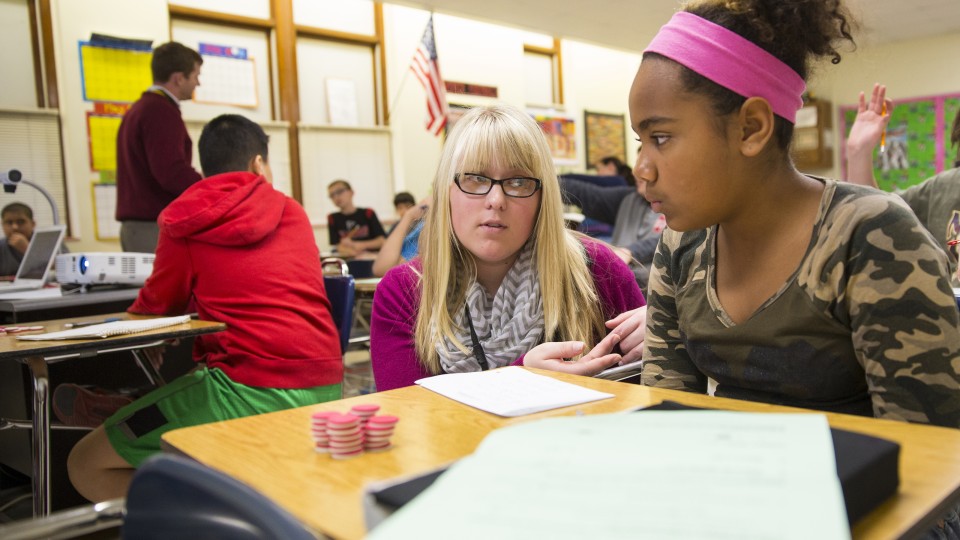Betsy Piland, December 31, 2017
Just as a group of University of Nebraska faculty was discussing the lack of underrepresented populations in science, technology, engineering, and mathematics (STEM) fields, an email arrived in a department inbox announcing a request for action (RFA) from the U.S. Department of Agriculture for a program to address precisely this problem.
With barely a month to research, write and submit a proposal, Jennifer Keshwani – an assistant professor in biological systems engineering at UNL – and her team ultimately secured three years of funding to run Cultivate ACCESS (Agriculture Career Communities to Empower Students in STEM.) The program?s goal will be to address the lack of women and people of color pursuing agriculture-related STEM careers. Keshwani and her team are excited about the potential of Cultivate ACCESS to effect real change.
?We are all just really passionate about helping a broader diversity of students come to the university, or other places of higher ed, and enter into STEM-related careers in agriculture. All of us [on the team] are either women or underrepresented minorities within STEM and agriculture, and we all play different roles within that. I'm a biological systems engineer, we have a collaborator in agronomy horticulture, one in plant anthropology, another who works in mechanized systems.?
Keshwani says most people equate agriculture with farming. While that?s certainly a significant part of the industry, ag-STEM careers span everything from equipment engineering, animal and crop DNA analysis, photosynthesis analysis and even law with specialized attorneys who work on patents and intellectual property.
The challenge of attracting young students to this field is twofold. First, they don?t have role models who reflect themselves. When a young Latina, for example, never sees a professional Latina as a plant scientist, the career seems less attainable to her. In addition, Keshwani explains that it?s well documented that women and minority students often want to be part of a "helping" profession and don?t see agriculture as fulfilling that desire.
?I see this all the time with my sophomore engineering students,? says Keshwani. ?They say, ?I'm pursuing a degree in engineering because I want to make a difference, I want to help people.? That's a big motivating factor, so helping them see how you can help through agriculture–through food production, through energy production, and all those aspects of agricultural careers–you are helping not just one person at a time, but thousands of people.?
With all of this in mind, the Cultivate ACCESS team will coordinate a mentoring program between industry professionals and young scholars–high school students identified by teachers and advisors, with a team of undergraduate college ambassadors to help facilitate communication. The funding, supported by a grant through the Women and Minorities in STEM Fields Program of the National Institute of Food and Agriculture at the USDA, will cover a year of program development, an online portal for mentor-scholar communication, mentor training, and then two years of recruiting and mentoring 30 young scholars per year.
?We're developing an online portal where industry mentors can work with high school scholars to develop relationships online. These professionals in STEM agriculture-related careers will be matched with scholars according to demographics as best we can. Research has shown that the more the student can see themselves in that role the better. College students ambassadors who are pursuing STEM ag careers will meet with young scholars in person since many of the mentors will be out of state; college ambassadors will bridge that gap.?
Keshwani is encouraged, even though the plan is just getting off the ground. ?The plan is to start recruiting scholars this spring, and industry professionals will receive mentor training virtually over the summer. We'll start having mentors, scholars and college ambassadors meet for the the first time this fall.?
In a perfect world? Keshwani would love to see all 60 students enrolled in the program go on to choose agriculture STEM careers. ?At the very least [I want] these students to see these careers as a realistic opportunity for themselves.?







